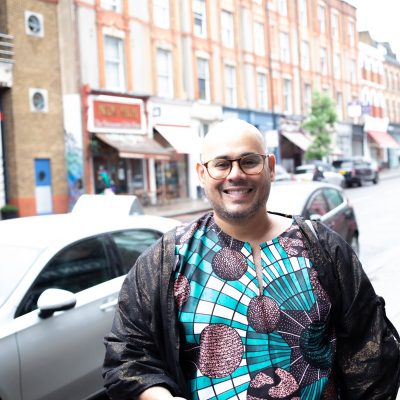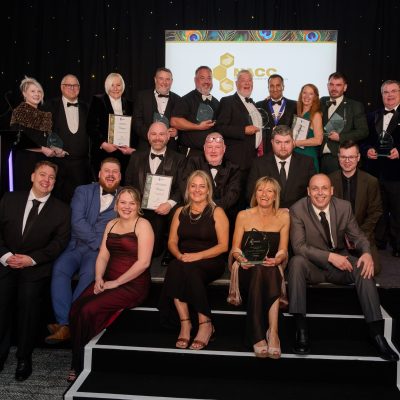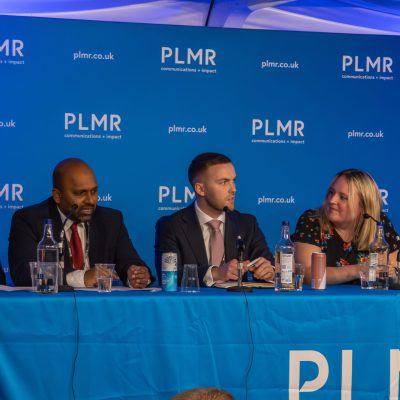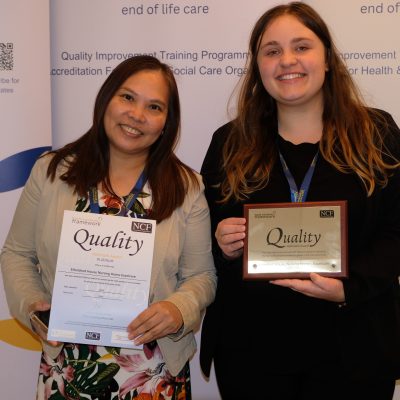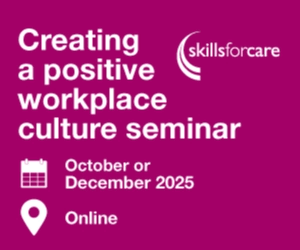Isaac Samuels, lived experience advocate and Co-Chair of Think Local Act Personal, shares why co-production is more than a buzzword — and how lived experience can transform services from the inside out.
From being sectioned in a mental health asylum to receiving an OBE in the King’s Birthday Honours, it’s been a proper roller coaster. But honestly, that’s pretty normal in the world of health and social care — ups and downs, challenges, and moments that push you to the edge. What’s made the difference for me though, is the right support and infrastructure social care provided. Without it, I wouldn’t be where I am today. And I know I’m not the only one — so many people’s lives are shaped by the kind of support they receive, or don’t receive.
Living well with a disability or mental health challenge isn’t just about surviving, it’s about thriving. And that’s where lived experience comes in — the kind of knowledge you only get by actually going through it. For me, having lived experience has been a game changer in how I engage with social care. It’s not just about ticking boxes or policies, it’s about real voices shaping real change. And the truth is, services that are designed without that insight often miss the point. They may look good on paper, but they don’t always meet people where they’re really at.
One of the things I’m passionate about is co-production. Sounds fancy, but it’s really simple — people with lived experience working alongside professionals to design and deliver services. It means we’re not just clients or recipients, but partners and leaders. This kind of collaboration creates services that actually work, because they’re built on genuine understanding and respect for what people need. When done properly, co-production is powerful: it builds trust, reduces fear, and sparks ideas that no single professional could come up with alone. I’ve seen the best services come from sitting round a table where everyone’s voice matters equally.
As a disabled person, having a voice and being in leadership roles is crucial. It’s about breaking down barriers and showing that people with lived experience have expertise that’s just as important as academic or clinical knowledge. My own journey has shown me how powerful it is when people listen, not just hear. When lived experience is valued, services become more empathetic, responsive, and effective. And it changes the whole culture too — staff feel more connected to the people they’re supporting, and people drawing on care feel like they actually matter, not like they’re a number in a system.
Social care isn’t just about care workers and organisations, it’s a whole ecosystem. Each part of that ecosystem needs the input of lived experience to flourish. It’s how we develop better outcomes and create services that genuinely support people. When we bring lived experience into the mix, we open the door to innovation, empathy, and practical solutions that might never come from traditional top-down approaches. And let’s be honest, top-down approaches have been tried for decades, and they don’t always work. Listening to the people who live it every day is how we move forward.
Getting an OBE was a huge shock to me. I never imagined recognition on that level, but it also felt like a nod to the importance of lived experience and co-production. It’s a reminder that no matter how tough the journey, your voice and story can make a real difference. And that difference ripples out to others who might be struggling, showing them there’s hope and that their experiences matter too. Because sometimes just knowing that someone else has walked a similar path — and found a way through — can give you the strength to keep going.
I want to see a future where lived experience isn’t an afterthought or a tick-box exercise, but a foundational part of social care design and leadership. Where people like me are not only heard but are shaping the policies and services that affect us every day. Because that’s how we build a system that truly supports everyone — with kindness, understanding, and respect.
So yeah, the road hasn’t been easy. But with the right support and a place at the table, lived experience can transform social care from something people endure to something people thrive within. And that’s worth shouting about.


